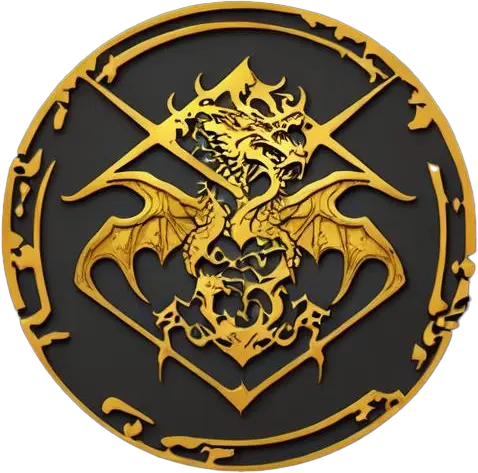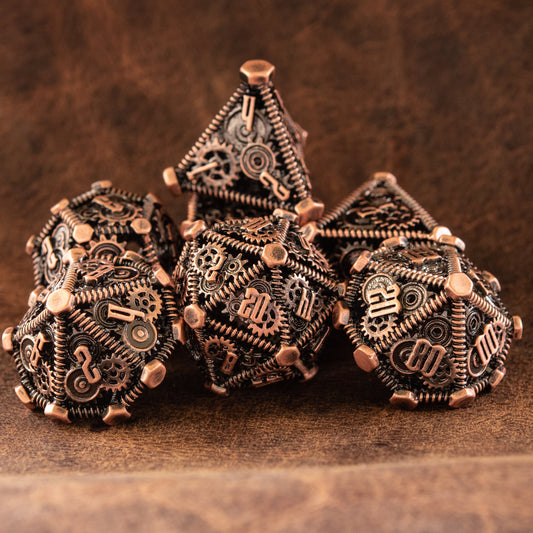Discover the Fascinating Distinctions Between Three of Dungeons & Dragons' Most Iconic Spellcasters: the Sorcerer, the Wizard, and the Warlock
Dungeons & Dragons (D&D) offers a rich tapestry of magical classes, each with unique abilities and lore. Among the most iconic spellcasters are the Sorcerer, the Wizard, and the Warlock. Understanding the origins of each class's magical abilities is key to grasping their fundamental differences. This article will explore the core differences between these classes, covering their sources of power and gameplay mechanics.
1. Sources of Power
1.1 Wizard
Wizards gain their magical abilities through rigorous study and practice. They are the scholars of the magical world, dedicating years to mastering the arcane arts. Wizards often attend magical academies or spend countless hours in dusty libraries poring over ancient tomes.
Examples:
- Hermione Granger from Harry Potter: Hermione's prowess in magic is a result of her dedication to studying and practicing spells.
- Dr. Strange from Marvel: Dr. Stephen Strange acquires his magical abilities through intense training and study at Kamar-Taj.
1.2 Sorcerer
Sorcerers possess innate magical abilities, often traced back to a magical lineage. Unlike wizards, they do not need to study or practice to harness their powers. Instead, their magic is a natural part of their being, often manifesting spontaneously.
Examples:
- Gandalf from The Lord of the Rings: Gandalf's magical abilities are inherent, making him a quintessential sorcerer.
- Elizabeth from BioShock: Infinite: Elizabeth's ability to open portals is an innate power she has had since birth.
1.3 Warlock
Warlocks derive their powers from pacts with powerful entities known as patrons. These patrons bestow magical abilities upon the warlock in exchange for services or allegiance. The relationship between a warlock and their patron adds a layer of complexity to their magic.
Examples:
- Corvo Attano from Dishonored: Corvo gains his powers through a pact with the mysterious Outsider.
- Jesse Faden from Control: Jesse's abilities are granted by an interdimensional entity named Polaris.
2. Gameplay Mechanics
Each class offers unique gameplay mechanics that shape how they are played in D&D.
2.1 Wizard
Wizards are versatile spellcasters with an extensive spell list and the ability to prepare different spells each day. They rely heavily on their spellbooks, which contain the knowledge of all their spells.
Strengths:
- Versatility in spells: Wizards can prepare a wide variety of spells to suit different situations.
- Ritual casting: They can cast certain spells as rituals, saving their spell slots for other uses.
Weaknesses:
- Low health: Wizards have low hit points, making them vulnerable in combat.
- Dependence on spellbooks: If a wizard loses their spellbook, they lose access to their spells.
2.2 Sorcerer
Sorcerers are flexible spellcasters with innate magic and access to metamagic to modify spells. Their magic is fueled by their inner power, allowing them to cast spells with unique twists.
Strengths:
- High damage output: Sorcerers can deal significant damage with their spells.
- Metamagic versatility: They can alter spells in various ways, such as extending their range or casting them more quickly.
Weaknesses:
- Limited spell selection: Sorcerers know fewer spells compared to wizards.
- Low health: Like wizards, sorcerers have low hit points.
2.3 Warlock
Warlocks have fewer spell slots but regain them quickly and have powerful cantrips and invocations. Their magic is tied to their patron, providing unique abilities and spells.
Strengths:
- Short rest spell recovery: Warlocks regain their spell slots after a short rest, allowing them to cast spells more frequently.
- Powerful cantrips and invocations: They have access to potent cantrips and invocations that enhance their abilities.
Weaknesses:
- Limited spell slots: Warlocks have fewer spell slots than other spellcasters.
- Reliance on patron: Their abilities are tied to their relationship with their patron, which can be a double-edged sword.
Understanding the distinctions between wizards, sorcerers, and warlocks is crucial for players looking to delve into the magical world of Dungeons & Dragons. Each class offers a unique experience, shaped by their source of power and gameplay mechanics.
Understanding the Differences Between Sorcerers, Wizards, and Warlocks in D&D
Roleplaying Aspects
When diving into the world of Dungeons & Dragons (D&D), the differences between a Sorcerer, Wizard, and Warlock extend beyond mere gameplay mechanics. Each class offers unique roleplaying opportunities that can enhance the storytelling aspect of your campaign.
Wizard
Description: Wizards are the quintessential scholars of the arcane. Their pursuit of magic is driven by a relentless quest for knowledge, power, or both. Wizards often spend years in study, mastering the intricate details of spellcasting.
Examples:
- Transmutation Specialist: A wizard who focuses on transmutation magic might aim to create a philosopher's stone, seeking to turn base metals into gold.
- Evocation Wizard: This type of wizard might specialize in destructive spells, viewing magic as a powerful weapon for combat.
Roleplaying Tips:
- Wizards can be portrayed as meticulous and methodical, often carrying an aura of intellectual superiority.
- Their motivations can vary from altruistic (seeking to protect the world) to selfish (desiring ultimate power).
Sorcerer
Description: Sorcerers are born with innate magical abilities, often stemming from a powerful lineage. Their magic is a natural part of them, and they must learn to control and harness it.
Examples:
- Lineage-Studious Sorcerer: A sorcerer who delves into their ancestry to understand the source of their powers.
- Control-Seeking Sorcerer: One who struggles with wild magic and seeks ways to manage and control their unpredictable abilities.
Roleplaying Tips:
- Sorcerers can be depicted as charismatic and confident, or alternatively, as individuals struggling with the burden of their powers.
- Their backstory can include a quest for self-discovery and acceptance of their magical heritage.
Warlock
Description: Warlocks gain their powers through pacts with powerful entities known as patrons. This relationship adds layers of complexity to their motivations and actions.
Examples:
- Great Old Ones Warlock: A warlock who steals power from an ancient, eldritch entity, constantly wary of being discovered.
- Archfey Warlock: One who navigates the intricate and often dangerous bargains with fey creatures.
Roleplaying Tips:
- Warlocks can be portrayed as cunning and resourceful, always seeking to balance their own goals with the demands of their patrons.
- Their interactions with their patrons can create interesting roleplaying scenarios, from reluctant servitude to enthusiastic devotion.
Subclasses and Specializations
Each class in D&D offers various subclasses that further define their abilities and role in the game.
Wizard Subclasses
Description: Wizards can specialize in different schools of magic, each offering unique abilities and spells.
Examples:
- Evocation: Focuses on elemental and destructive spells.
- Necromancy: Specializes in manipulating life and death.
- Abjuration: Provides protective and defensive magic.
- Divination: Involves seeing the future and gaining insight.
- Conjuration: Summons creatures and objects.
- Transmutation: Alters physical properties.
- Enchantment: Controls and influences minds.
- Illusion: Creates deceptive images and sounds.
Sorcerer Subclasses
Description: Sorcerers' subclasses reflect the source of their innate magic.
Examples:
- Draconic Bloodline: Powers derived from dragon ancestry.
- Wild Magic: Unpredictable and chaotic magical effects.
- Divine Soul: Blessed by celestial forces.
- Aberrant Mind: Psionic powers from alien influences.
Warlock Subclasses
Description: Warlocks' subclasses are defined by their patrons, each granting different powers.
Examples:
- Archfey: Powers of illusion and enchantment.
- Fiend: Destructive and fiery magic.
- Great Old One: Mind-altering and telepathic abilities.
- Celestial: Healing and radiant powers.
Conclusion
Each class in D&D offers a unique experience, shaped by their source of power, gameplay mechanics, and roleplaying potential. Whether you are drawn to the scholarly pursuits of a Wizard, the innate abilities of a Sorcerer, or the complex pacts of a Warlock, there is a wealth of opportunities to explore and enjoy.
Call to Action: Choose the class that resonates with you and dive into the magical world of Dungeons & Dragons! Embrace the roleplaying challenges and enjoy the rich storytelling possibilities that each class brings to your campaign.





